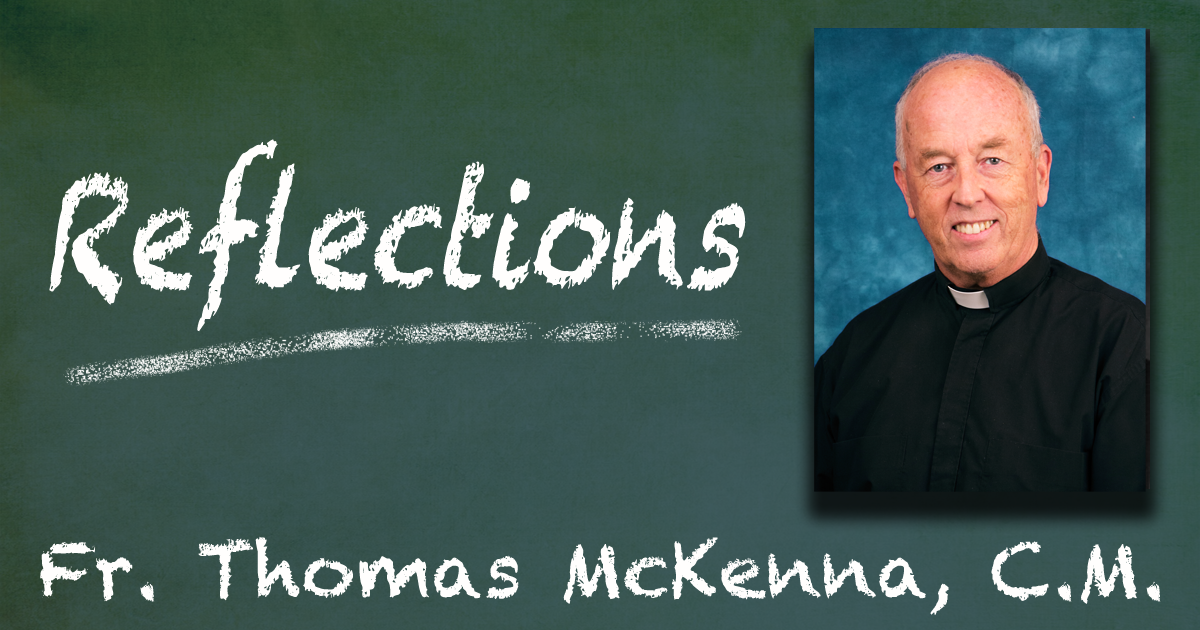
Trinitarian Nearness (Rom. 8; Mt. 28)
A woman once told me a lesson she had learned during the last days of her husband’s life. He had all the medical attention possible with hospice workers around the clock. But in those last days, she said, all he really wanted was her nearness, her being close by, her holding his hand, her hovering near. She realized that this close personal presence was what he wanted most and until the end. And she went on to say she thought that to be true for most everyone else not just in death but throughout life.
Why recount her lesson on the Sunday we call Trinity Sunday – a day in the year when we turn attention to this core belief that our one God somehow possesses a “three-ness,” as in “The name of the Father, and the Son and the Holy Spirit.” Because among other things, this belief in the Holy Trinity highlights the nearness and up-closeness of our God.
Several Church Fathers and Mothers came at this mystery not so much through their intellects as through their experiences of God. Focusing less on the individual persons in the Trinity, they keyed in on the relationship between them. The Father loves the Son; the Son returns that love to the Father; and the Spirit is the love going back and forth between them. These saints attended to the connection between the persons, the interchange going on, the dynamism in their relationship, their mutual and circulating love.
For St. Augustine, the Father is the lover, the Son is the beloved, and the Spirit is the love going back and forth between them. He presents the Spirit not so much as a noun but more as a verb, a verb in action — the loving, the interacting, the pouring out. St. Bernard of Clairvaux uses a metaphor memorable for catching the feel of Augustine’s insight; i.e., the kiss. For him, the Father is the one giving the kiss, the Son is the one receiving that kiss, and the Spirit is the actual kissing — the very coming together, the connecting of the persons in love. Again, not a noun, but a verb in action, not something described but something happening.
These witnesses are straining to put words around an experience of personal nearness, of another’s coming close, of that profound but elusive stirring that occurs when you know you’re being loved. It’s not so much a thing as an interchange, the focus not on the two people but the back and forth between them, not so much the medicine that wife gave her husband as the loving that was happening in the very giving of it.
So when considering the Trinity, it might be worthwhile to focus less on how three (somehow) goes into one but more on how it is that the cycle of love goes round. Think less of a heavenly puzzle to be figured out and more of how it is that love comes near and draws up close and stays intimate.
Additional images emerge in the readings for the Feast. Paul instructs the Romans. “The spirit you’ve received isn’t a fearful one, as if you were one of the slaves living outside the walls of the home. Rather you’ve been taken in, adopted, pulled into the family, drawn near.” (Rom. 8: 15) He goes on to point out that even though we all have a spirit, an inner core that directs how we see and act, there is more to us. A much deeper and all-encompassing Spirit pervades our spirit, and this greater Spirit is precisely this nearness of God to us. Further, the way this Holy Spirit comes into the world is through each of our spirits. “The Spirit bears witness with our spirit that we are children of God.” This nearness of God fills our hearts and souls, lifting them up as wind lifts wings.
In the gospel, we hear Jesus’ statement that though it might look as if he is leaving, in his Spirit he will be even closer to us than before. “All power has been given to me and now I give it to you. “I am with you always, until the end of the age.” (Mt. 28: 17-20)
The Trinity speaks nearness, the kind of nearness that husband felt in his last hours, the kind of hovering close that God in Jesus Spirit brings so nearby. In this don’t we hear echoes of Vincent’s missionary intent that all people and the poor especially are to come to know the closeness of the love of God.
In the name of the Father and Son and Holy Spirit. In the name of our God who is with us in all times and places and situations.





0 Comments